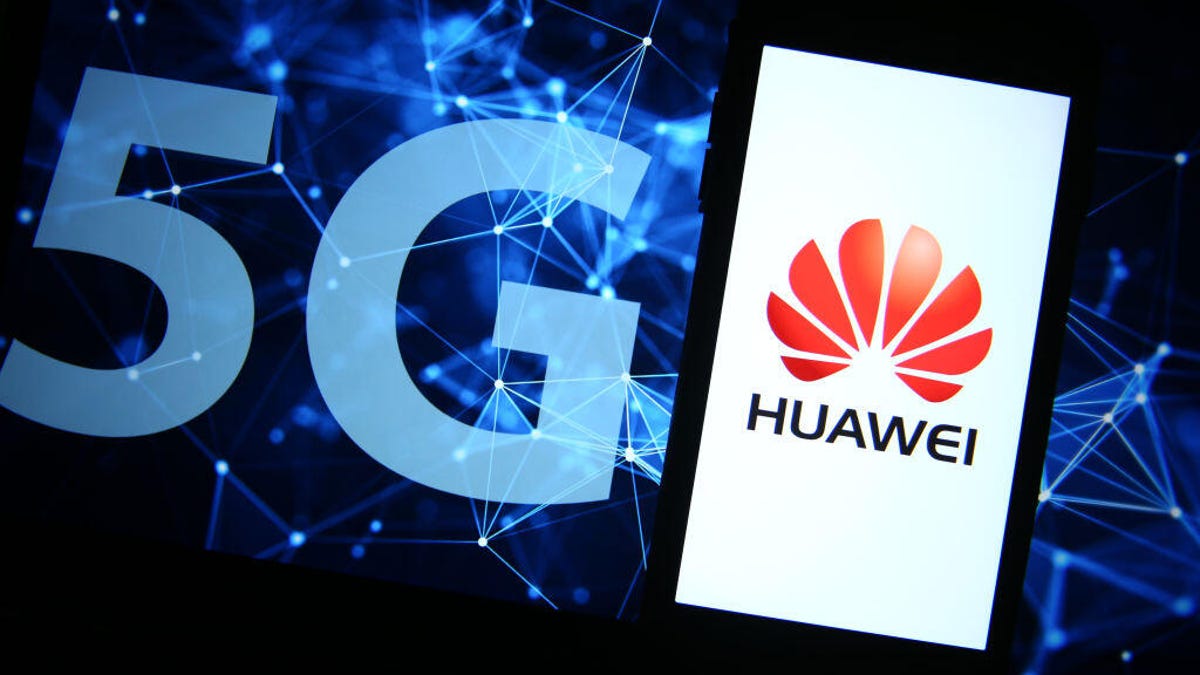UK Parliament cites 'clear evidence' Huawei colluded with Chinese state
In a Defence Select Committee report, lawmakers say the UK and its allies should work together to build tech to rival China.

Huawei's equipment will be ripped out of the UK 5G network.
Allegations about the strong ties between the Chinese tech company Huawei and China's ruling Communist Party are nothing new, but on Thursday lawmakers in the UK took the claims up a notch. According to a report released by Parliament's Defence Select Committee, there is "clear evidence of collusion" between Huawei and the Chinese government, which justifies the removal of Huawei equipment from the UK's 5G network.
Prime Minister Boris Johnson announced in June that all Huawei equipment should be removed from UK 5G network infrastructure by 2027, but Thursday's report suggested this may not be soon enough. Removal of Huawei equipment by 2027 is a "sensible decision," it said, but if there is pressure from allies or if the threat from China's increases significantly, the government should consider the economic viability of moving the deadline forward to 2025.
Pressure from allies has already caused the UK to change its policy on Huawei once already. In January, Johnson announced that Huawei would be able to provide equipment for non-core parts of the country's 5G network. Even though Huawei was deemed a "high-risk" vendor, 5G networks are deemed more secure if they contain kit built by a range of different companies, and the risk posed by Huawei was deemed manageable.
But then in May, US government sanctions against Huawei meant the company could no longer use technology from US companies in its kit, blocking global chip supplies to the company. Following the announcement of the restrictions, the UK's National Cyber Security Centre reassessed the security threat posed by Huawei and said the changes meant it could no longer scrutinize the company's supply chain and guarantee its security, which in turn caused the UK government to revise its earlier decision on allowing Huawei equipment in the country's network.
In Thursday's report, the Defence Select Committee praised the government's decision to exclude Huawei due to its links with the Chinese Communist Party, which it said were evidenced by its ownership model, the government subsidies it has received and its "apparent willingness" to support China's intelligence agencies and China's 2017 National Intelligence Law.
"Having a company so closely tied to a state and political organisation sometimes at odds with UK interests should be a point of concern and the decision to remove Huawei from our networks is further supported by these links," it said.
Huawei has repeatedly pointed out that companies from all countries, including the US and the UK, accept government subsidies, and it has pledged never to give China's intelligence agencies any kind of backdoor access to its technology. "This report lacks credibility, as it is built on opinion rather than fact," said a spokesman for the company on Thursday. "We're sure people will see through these groundless accusations of collusion and remember instead what Huawei has delivered for Britain over the past 20 years."
Also in the report, which was not looking purely at Huawei but examining the security threats posed by 5G more broadly, members of Parliament also highlighted the lack of vendors able to provide 5G network technology globally. The lack of diversity, even when Huawei was in the mix, was "sub-optimal," it said, meaning that its removal creates new security and resiliency concerns.
MPs acknowledged that the UK and its allies don't currently have the same capabilities to build telecoms equipment as China, but that a new coalition of democracies should work together on competing technologies that would reduce their reliance on China-built tech.
"The West must urgently unite to advance a counterweight to China's tech dominance," said committee chair Tobias Ellwood in a statement. "A new D10 alliance, that unites the world's ten strongest democracies, would provide a viable alternative foundation to the technological might of authoritarian states, whose true motives are, at times, murky."

